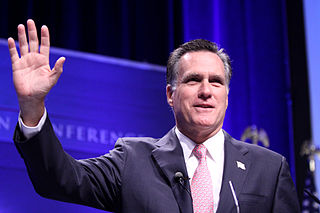
Syrian protesters in front of the Syrian embassy in Cairo.
Bob Garfield of NPR’s “On the Media” has a fascinating conversation this week with NPR’s Andy Carvin and Sky News’ Neal Mann about whether they felt comfortable tweeting a horrifically graphic video of a Syrian boy whose lower face was blown off in the city of Homs, which is under attack by forces loyal to President Bashar al-Assad.
Mann’s answer: No. Carvin’s: Yes, with appropriate warnings.
I want to play the segment for my Reinventing the News students tomorrow. I thought it was a great example of the dilemmas faced by professional journalists whose duties now include curating citizen media. And I considered whether to show them the video. It’s not hard to find, though I won’t link to it. I’ve bookmarked it, and I’ll think about it a bit more. But right now I can’t imagine subjecting a captive audience of 15 students to such a disturbing video.
Frankly, even though Carvin says he gave his Twitter followers plenty of warning, I think I’m with Mann. Because what, really, is the larger meaning of the video? Carvin tells Garfield:
I shared the video because I actually thought it would snap people out of their complacency, because we’ve seen so many videos of people protesting, so many videos of people just laying there in hospitals. But there was something about this image, about being able to look this boy in the eye and see the numbness; his soul was already beginning to disappear at that point. It seemed to me emblematic of what was happening in Homs, and I wanted to give people that opportunity to watch it, if they chose.
Yet, driving home this evening, I heard a report about an investigation into the deaths of eight children killed in Afghanistan by a NATO air strike gone awry. Carvin wants us to know about the brutality of the Syrian government. Well, OK, but what about ours? Might a citizen journalist in Kapisa province have shot footage of a boy fatally injured by American-backed forces just as horrific as the one Carvin tweeted?
Not to stack the deck. I have enormous respect for Carvin, and his action definitely accomplished some good. As he tells it, because of his tweet, an emergency medical team mobilized in Lebanon, ready to help the injured boy. Unfortunately, he died before he could be spirited out of the country.
What the Assad regime is doing in Syria is absolutely savage. But the video doesn’t tell us much more than the universal reality that war is hell.
Photo (cc) by Maggie Osama and republished here under a Creative Commons license. Some rights reserved.

 Tip O’Neill said you can’t win if you don’t ask for people’s votes. So today I’d like to ask if you’d consider voting for Media Nation in BostInno’s Insider Awards. You can
Tip O’Neill said you can’t win if you don’t ask for people’s votes. So today I’d like to ask if you’d consider voting for Media Nation in BostInno’s Insider Awards. You can 

 Even a card-carrying secular humanist like me couldn’t help but be troubled that the Obama administration was ordering the Catholic Church to
Even a card-carrying secular humanist like me couldn’t help but be troubled that the Obama administration was ordering the Catholic Church to 
New Haven Independent suspends comments
By Dan Kennedy
On February 7, 2012
In Media
The New Haven Independent, a nonprofit, online-only news site, has long stood as a model for how to handle comments the right way. Though editor and publisher Paul Bass allows anonymity, he makes sure that every comment is screened before it’s posted. His comments policy begins: “Yes we do censor reader comments. We’ll continue to.”
So I was pretty surprised to learn a little while ago that Bass has suspended comments in order to give him and his staff some time to “catch our breath” and think about how to handle a deluge of nastiness — a deluge that he says has been on the increase since last fall’s contentious mayoral campaign. He writes:
What precipitated the hiatus, Bass explains, was a particularly hateful comment that somehow got posted even though he thought he’d zapped it. (It’s gone now.)
The city’s daily newspaper, the New Haven Register, has had its own problems with hateful, racist online comments. The new editor, Matt DeRienzo, vowed shortly after his appointment last summer that the Register would begin screening all comments — a system that is now in effect.
The idea behind comments is to build a community around the news through a multi-directional conversation. Though community and conversation remain worthwhile goals, nearly 20 years into the online-news era it remains far from clear as to whether online comments are the best way to do that.
Wednesday follow-up: Matt DeRienzo has written a smart reaction piece, asking, among other things, “How can the community be part of your journalism if you don’t even allow them to comment on what you do?”